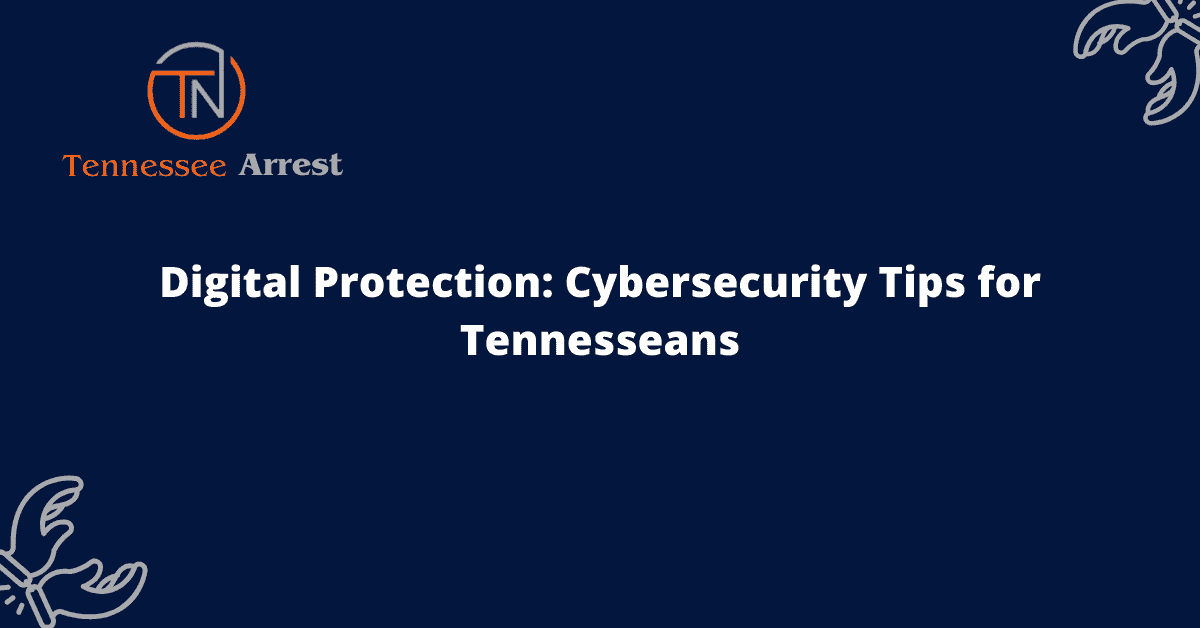Digital Protection: Cybersecurity Tips for Tennesseans
Welcome to Digital Protection: Cybersecurity Tips for Tennesseans. In today’s digital age, it is more crucial than ever to prioritize your online safety. With cyber threats becoming increasingly sophisticated, it is important to stay informed and take necessary precautions to protect your personal and sensitive information.
In this guide, we will provide you with valuable tips and strategies to enhance your cybersecurity. Whether you are an individual, a small business owner, or a parent concerned about your child’s online safety, we have got you covered. From securing your devices and networks to safeguarding your personal data, we will explore various aspects of digital protection to ensure you have the knowledge and tools to stay safe online.
Understanding Cybersecurity
In today’s digital age, cybersecurity has become a top priority for individuals, businesses, and organizations alike. With the increase in cyber threats and attacks, it is essential to have a clear understanding of what cybersecurity entails and why it is crucial for protecting your personal and sensitive information.
The Importance of Online Safety
As we rely more on the internet for various aspects of our lives, such as communication, banking, shopping, and entertainment, the need for online safety has never been greater. This section will explore the reasons why prioritizing your online safety is essential and the potential risks and consequences of neglecting it.
Securing Your Devices and Networks
In this section, we will discuss practical tips and strategies to secure your devices and networks from cyber threats. From using strong passwords and two-factor authentication to keeping your software and firmware up to date, we will provide comprehensive explanations on how to protect your devices and ensure a secure network environment.
Safeguarding Your Personal Data
Your personal data is valuable and can be targeted by cybercriminals for various purposes, such as identity theft and financial fraud. This section will cover best practices for safeguarding your personal data, including tips on data encryption, secure online browsing, and safe data storage.
Protecting Your Privacy Online
In an era of data breaches and online surveillance, protecting your privacy has become more challenging. This section will explore effective strategies to maintain your privacy online, including using virtual private networks (VPNs), managing your social media privacy settings, and being cautious about sharing personal information.
Teaching Online Safety to Children
As a parent or guardian, ensuring your child’s online safety is of utmost importance. This section will provide valuable tips on how to teach your children about online safety, including setting boundaries, monitoring their online activities, and educating them about the potential risks they may encounter.
FAQs
What is digital protection?
Digital protection refers to the measures taken to safeguard personal and sensitive information stored and transmitted online. It involves implementing security measures to prevent unauthorized access, data breaches, and cyber threats.
Why is digital protection important?
Digital protection is important because it helps protect individuals and organizations from various cyber threats such as hacking, identity theft, and data breaches. It ensures the confidentiality, integrity, and availability of digital information.
What are cybersecurity tips?
Cybersecurity tips are guidelines and practices that individuals can follow to enhance their online safety. These tips include using strong and unique passwords, regularly updating software, being cautious of phishing emails, and using secure internet connections.
How can Tennesseans protect themselves online?
Tennesseans can protect themselves online by being cautious of sharing personal information, using strong passwords, encrypting sensitive data, keeping software and antivirus programs updated, and being aware of common online scams and threats.
What are some common cybersecurity threats?
Some common cybersecurity threats include malware, phishing attacks, ransomware, social engineering, and identity theft. These threats can compromise personal and financial information, disrupt operations, and cause significant damage.
What should I do if I suspect a cybersecurity incident?
If you suspect a cybersecurity incident, it is important to report it to the appropriate authorities or your organization’s IT department. They can help investigate the incident, mitigate the damage, and implement measures to prevent future incidents.
Conclusion
In conclusion, prioritizing your online safety and adopting effective cybersecurity measures is essential in today’s digital world. By staying informed and implementing the tips and strategies discussed in this guide, you can enhance your cybersecurity and protect yourself, your business, and your loved ones from the ever-evolving cyber threats.







